Monash Partners is an NHMRC-accredited Research Translation Centre. We collaborate to deliver research-informed healthcare and training. The below case studies highlight our work in translating research into better health outcomes and building capability across the system.
Case studies on this page:
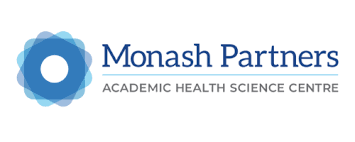
Case studies from all Research Translation Centres are available from Impact and outcomes.
Developing, re-designing or adopting platforms, systems or workforce initiatives: Bridging Research & Quality in Healthcare
Challenge
Health service evaluation and improvement activities and clinical quality registries are essential components in improving clinical care and service delivery and embedding research in healthcare. Harmonisation of ethics and governance processes remains, however, an elusive goal, particularly for multi-site projects that continue to experience delays, duplication, and inefficiencies.
A key priority to emerge from the Victorian Clinical Research Governance Streamlining Initiative, is the need for proportionate review pathways including definitions, processes and infrastructure for quality assurance and improvement activities.
Approach
As an essential first step to identify appropriate local solutions, a first ever state-wide summit was held to: highlight thought leadership and evidence from research; share learnings and approaches to the ‘grey zone’ between clinical practice and research; showcase different approaches, share and debate ideas, discuss critical issues; support networking and strengthen collaboration between research and quality leads; identify principles and priorities to guide future work. Key stakeholders from metropolitan, regional, and rural health organisations across Victoria (N=85) included Research Managers, Quality and Safety Leads, Consumer Partners, Data leads, Legal Officers, and key leaders in government and community organisations.
Significance
For the first time agreed state-wide key principles have emerged from the summit discussions. Agreement to key principles is the start of the bridge-building between research and quality in healthcare.
The agreed principles are:
- Improving healthcare and patient outcomes is a shared responsibility that requires commitment and collaboration
- All evaluation and improvement activities must be designed and conducted ethically
- Consumer involvement is essential to improve care and achieve meaningful outcomes
- Leveraging the timely use of available quality and safety data will support healthcare improvement and research
- Improved systems both within and across organisations are necessary for future growth.
Consistent, shared frameworks for governance and data must be built within clinical systems.
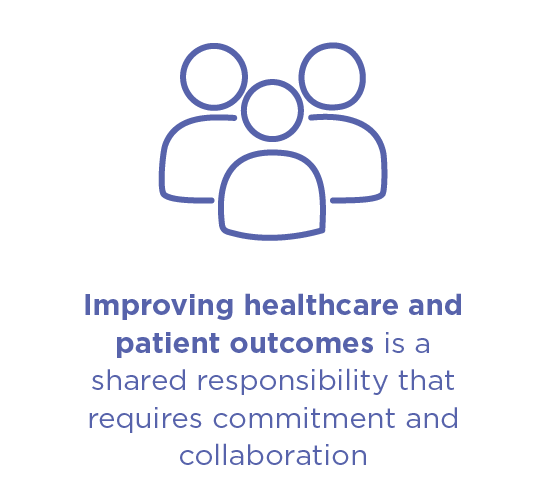
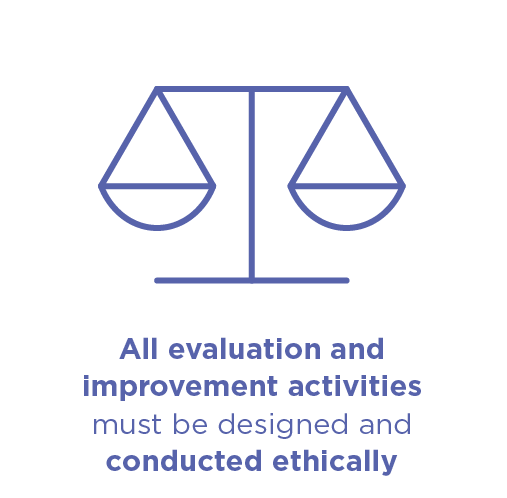
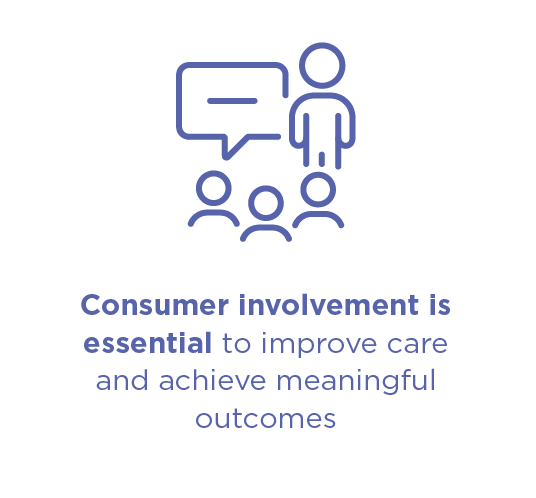
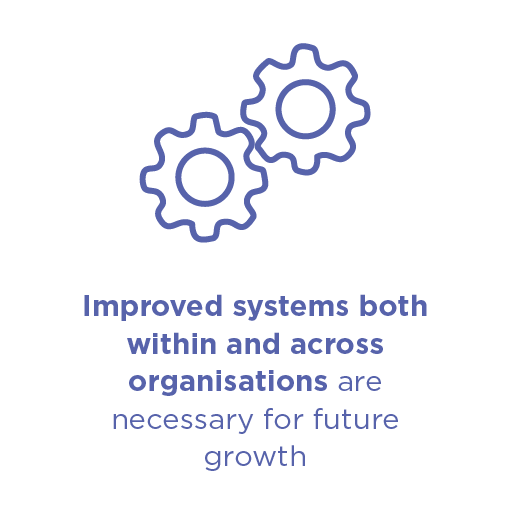
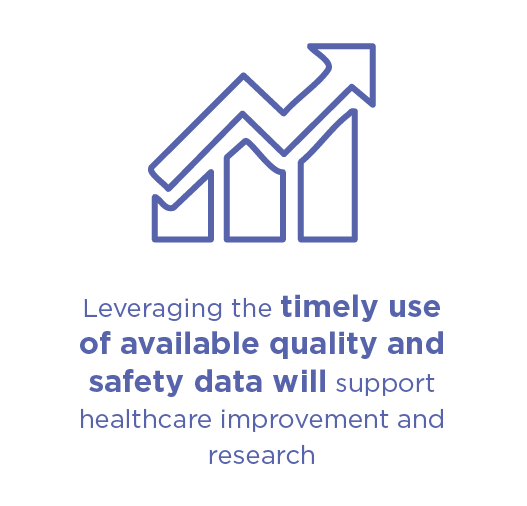
Value-add of centre
This Monash Partners led initiative, in collaboration with Western Alliance and Melbourne Academic Centre for Health, has laid the groundwork for addressing a long standing and ‘wicked’ challenge.
The Research Translation Centre’s played a key role in identifying and engaging thought leaders, gathering the evidence and bringing all relevant stakeholders together, for the first time, to develop a shared understanding and identify potential solutions. Sustained engagement and support will be vital to create an environment to support implementation of guiding principles and sustainable change.
Reach
Whilst still in the early stage, a state-wide pathway ahead has now been clarified.
Next steps
The next steps include engaging health service CEOs around support for system change, and:
- Refining Principles to underpin Victoria’s approach and ongoing commitment to improving care
- Creating opportunities to engage, share learnings, and stay informed through a community of practice, events and communications
- Progressing early priorities:
- Consistent approaches to disclosure and consent
- A state-wide project template to improve quality of project planning
- ‘Publishing Quality Assurance’ - co-develop a process to support organisational oversight of quality projects that meet the criteria for journal publication.
- Piloting a model of governance for Clinical Quality Registries within a Quality framework.
Providing better care: Early detection of primary aldosteronism
Challenge
Hypertension, or high blood pressure, affects over a billion adults worldwide and is the leading risk factor for cardiovascular disease. It is estimated that around one in ten (10%) patients with hypertension has primary aldosteronism (PA) as the root cause of their high blood pressure. However, in Victoria less than one in one thousand (< 0.1%) hypertensive patients are diagnosed with PA, resulting in incorrect treatment and preventable conditions such as heart disease and stroke.
While PA causes disproportionately more irregular heartbeats, strokes, heart attacks and heart failure than most other causes of high blood pressure, it is potentially curable with surgery or can be effectively treated with targeted medication.
Barriers to diagnosis of PA include a lack of screening guidelines for hypertensive patients in primary care and diagnostic tests which can be challenging, time-consuming and costly, involving hospital stays. There is an urgent need to improve the early detection of PA and reduce heart disease in our community.
Previous work has included the development of clinical guidelines for PA and establishment of the first dedicated Endocrine Hypertension Service in Victoria.
Approach
The study established, for the first time, the health and economic impact of a PA screening program in a large multi-cultural population of hypertensive patients in Australian primary care. It demonstrated that 1 in 7 treatment-naïve hypertensive patients may have PA if actively screened for the disease by their General Practitioner (GP), and that it is cost-effective to screen for PA from the age of 40 in the primary care setting.
The project also led to progress in establishing a Victorian reference laboratory for the measurement of aldosterone and peripheral venous steroid profile (PVSP) by liquid chromatography-tandem mass spectrometry (LCMS/MS). The improved assay will lead to an even more accurate assessment of primary aldosteronism.
A series of education modules were implemented for GPs to raise awareness of PA. A final outcome of the project was the establishment of a PA registry.
Significance
The most remarkable finding is the very high rate of primary aldosteronism in patients with treatment-naïve hypertension. Prior to the study, less than 1 in 1,000 hypertensive adults had a diagnosis of PA. Partnership with GPs to implement a primary care education program increased the diagnosis of PA from less than 1 in 1,000 to 1 in 7 hypertensive adults, demonstrating the benefits of active screening for PA. Establishment of a Victorian reference laboratory and improved assay will lead to more accurate assessment of primary aldosteronism.
By demonstrating that it is cost-effective to actively screen for PA in all hypertensive patients and not just those with resistant disease or end organ damage, the results will inform changes in PA screening guidelines. The meaningful involvement of consumers at all stages of this work was recognised through a Monash Partners Consumer and Community Involvement award.
Value-add of centre
This collaborative initiative engaged clinical and research leaders through Monash Partners Clinical Themes in Cardiovascular Disease and Metabolic Medicine. Primary care and consumer and community involvement was supported through the relevant Monash Partners enabling platforms while engagement with Aboriginal Communities has been strengthened through our First Nations Research Working Group.
The seed funding provided by Monash Partners has been leveraged in several successful grant applications to further the research ($7.7 million), including an NHMRC Centre of Research Excellence.
Reach
The research has increased research capacity and clinical capability through increased training opportunities in the management of endocrine hypertension, development of an education module for physician trainees to upskill in PA diagnosis and management and increased access to collaborative projects with overseas research groups. There are several trainees participating in international studies.
Meeting the needs of your end-users in your population
Challenge
The community are the funders and beneficiaries of both research and healthcare in Australia. They deserve to be front and centre in driving a health system informed by research that meets their needs. Compelling global experience indicates that involving consumers and community members in research adds value and enhances the translation of research findings and discoveries into better clinical care.
Significant progress has been made around policy with increasing recognition of the importance of consumer and community involvement. However, more is to be done to support implementation and embed consumer and community involvement in research and healthcare improvement.
Approach
Monash Partners’ philosophy is – research and innovation in partnership with the community. Monash Partners leadership in consumer and community involvement includes:
- Prioritisation of consumer and community involvement in our strategic plan
- National engagement through the Australian Health Research Alliance (AHRA)
- Co-leadership of the AHRA consumer and community involvement initiative
- Collaborations with consumer and community involvement experts in the UK and Canada.
Qualitative research has included:
- Interviews with researchers, health professionals, consumers, representatives from broad community organisations, health services and ethics committees to understand the barriers and enablers to meaningful consumer and community involvement
- Systematic scoping review to identify and evaluate consumer and community involvement training content for researchers and health personnel
- Qualitative interviews, scoping and grey literature review of integrated models of consumer advisory panels in health research
- Facilitation, on behalf of AHRA, of a national consultation process on the revision of NHMRC and the Consumers Health Forum of Australia 2016 Statement on Consumer and Community Involvement in Health and Medical Research
- Co-lead on an Australian Government Department of Health, Disability and Ageing under the Medical Research Future Fund (MRFF) funded Consumer and Community Involvement Implementation Research for Impact project (MRF2019278)
- National survey on behaviours and attitudes that underpin consumer and community involvement adoption
- In partnership with the Australian Health Research Alliance and the Monash Centre for Health Research and Implementation, Monash University, codesign of a digital platform to guide consumer and community involvement – Health Research Hub
- Consultation to refine Monash Partners guidelines around payment, reimbursement and recognition of consumers.
Significance
Key themes identified from our research include:
- Principles of engagement
- The need for capacity and capability building to support consumer and community involvement implementation
- The importance of respect, diversity and inclusion and developing rapport
- The value of novel approaches to sustained engagement rather than a project by project approach.
We have established an enabling platform for information and training, undertaking research, identifying best practice, and developing strategies to prioritise and facilitate consumer and community involvement.
Value-add of centre
Monash Partners is adding value by undertaking research to build the evidence base for consumer and community involvement and strengthening consumer and community involvement at system, organisation and individual levels.
Our resources are freely available nationally and are building capacity of researchers, consumers and health professionals.
We have supported numerous research groups through our advice and support service with our consumer advisory groups providing key learnings around getting the engagement with consumers right (think about the long term), the importance of a strong focus on relational factors and relationships and approaches to the challenge of recruiting consumers to health research.
Reach
Monash Partners developed and supported an online suite of curated, freely available resources, that have been accessed by more than 6,500.
Consumer engagement advice and support has been provided to researchers across our network (140 projects supported).
A consumer advisory panels (CAPs) model was co-designed and implemented and informed the establishment of 3 panels – Monash Partners overarching, Emergency Care and Child Health, supported by dedicated project manager.
Next steps
Next steps include launching the Australian Health Research Alliance Health Research Hub, including curated resources, a newsletter, events and opportunities to connect.

